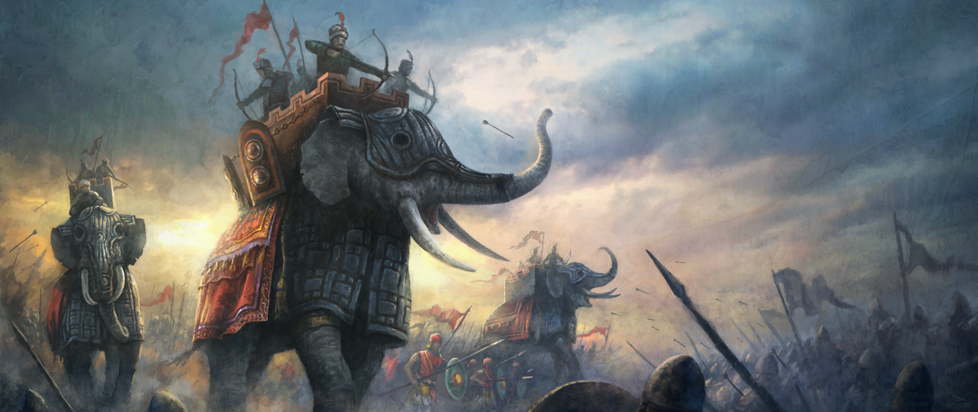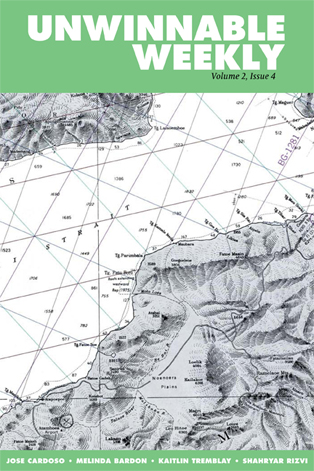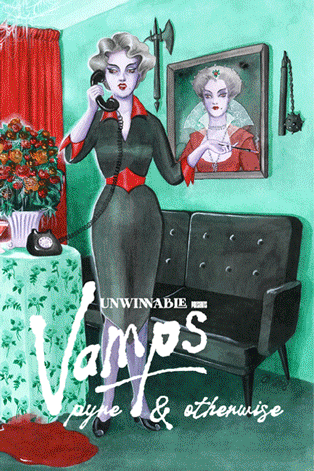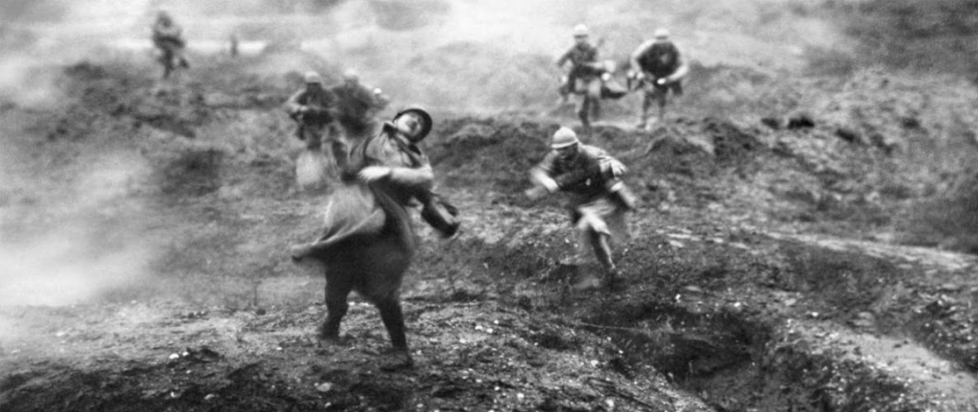
Feudal Pakistan
The following is a reprint from Unwinnable Weekly Issue Fifty Six. If you enjoy what you read, please consider purchasing the issue or subscribing.
———
“Three things for which we kill – land, women and gold.”
– Daniyal Mueenuddin, in his book,
In Other Rooms, Other Wonders,
quoting a Punjabi proverb
Emir Cedim of the Ozan dynasty holds more lands in Syria than his vassals are comfortable with. His many half-brothers vie for power. The emir has had to kill one half-brother, Togay, who became decadent and plotted against the Emir. Now Togay’s Persian widow plots to kill Emir Cedim and his son from her home court in the East.
This is just one of many scenarios you’ll find in Crusader Kings II, a grand strategy game that tasks the player with perpetuating a dynasty of primary characters in the struggle for power during the Middle Ages. There are many ways to maintain your line of succession. Players can train and raise levy armies to conquer territory, plot against other characters, and arrange alliances through marriage. It bears more than a passing resemblance to playing Game of Thrones.
In fact, much of George R.R. Martin’s lore is based in Middle Ages norms and history – there are even Crusader Kings fans that created a mod set in Westeros. (Showrunners David Benioff and Dan Weiss have met with Crusader Kings developer Paradox Interactive, too, over concerns about possible monetary benefit of the license through the mod.)
Crusader Kings feudal setting is also intriguing because, as a Pakistani-American, I am influenced by a society that hasn’t shaken off its history. The feudal system still persists in Pakistan today, alongside illiberal democratic institutions and deep state actors among the police and armed forces.
The current social order in Pakistan is a holdover of the dynastic Indian kingdoms, tax collectors and landowners – all who acted as auxiliaries for the Mughal and British Empires – and tribal institutions.
The story of one prominent dynasty in Pakistan plays nearly like a Crusader Kings scenario. Zulfiqar Ali Bhutto, a member of a Sindhi Rajput clan (while the majority of Rajput clans in South Asia are Hindu, some, including the Bhuttos, are Muslim) and founder of the center-left Pakistan People’s Party, became Prime Minister in 1971; a year later, Bhutto began the nationalization of urban factories (what would be considered a centralization law change in Crusader Kings terms).
One of the casualties of the program was the pride and finances of Punjabi industrialist Muhammad Sharif. Any promised agricultural land reform in parallel to industrial nationalization was trifling, likely because the Bhutto family holds large swaths of farmland. Thus began a rivalry.
Meanwhile, Muhammad Sharif’s son Nawaz was groomed into provincial politics by the military establishment. The younger Sharif supported General Zia ul-Haq, Pakistan’s Chief of Army Staff in charge of imposing state martial law. The general staged a successful coup d’etat against Bhutto in 1977. Bhutto was hanged under ul-Haq’s regime in 1979.
 That same year, Murtaza Bhutto founded his own militant group, al-Zulfiqar with his brother Shahnawaz after the execution of their father. This led to the brothers drifting apart from their sister Benazir; even as the Bhuttos were terrorized by ul-Haq for nearly a decade, enduring arrest, imprisonment and exile, their political ideologies were shifting.
That same year, Murtaza Bhutto founded his own militant group, al-Zulfiqar with his brother Shahnawaz after the execution of their father. This led to the brothers drifting apart from their sister Benazir; even as the Bhuttos were terrorized by ul-Haq for nearly a decade, enduring arrest, imprisonment and exile, their political ideologies were shifting.
Sharif (who is Pakistan’s current Prime Minister, serving his third non-consecutive term) would eventually be deposed as well, but not by the Bhuttos. A military group that ostensibly was neutral in the long-standing feud between the Bhuttos and Sharifs staged a coup in 1999.
Still, Benazir Bhutto had maintained the discord against the Sharif family for years. In 1987 Benazir married Asif Ali Zardari, and was elected Prime Minister in a 1988 general election following the death of ul-Haq in a plane crash.
Marrying Zardari only drove a wedge further between Benazir and Murtaza Bhutto, however. After she took office as Prime Minister, Benazir sided with her husband, branding her brother and al-Zulfigar as terrorists. Murtaza rebelled further, continued agitations against his kin’s party until his death during a police encounter in 1996. Zardari was charged with Murtaza’s murder but was acquitted in 2008. While campaigning to become Prime Minister for a third non-consecutive term, Bhutto herself was assassinated in 2007. Her family accuses the same military clique that deposed Sharif of the assassination.
One may see similar sordid histories play out among political dynasties in the 20th century, often motivated by title ownership and co-option of democratic party politics in developing countries. Playing Crusader Kings II, I felt as if I was simulating the persistent patri-feudal system my parents grew up with, and that many in the South Asian diaspora live and continue to perpetuate in their own families.
Pakistani culture is a mix of Muslim and Indian influences formed over centuries of assimilation and appropriation. As a member of the community, I am expected to promote ghairat – a concept that loosely translates from Urdu (via its Arabic root) to reputation, but encompasses honor, esteem and a contradictory mix of modesty and pride.
Many of the social mores in Pakistani society are influenced by restrictive Islamic morality and holdovers of Edwardian uprightness from British rule. Actions like arranged marriages, hoarding and passing on wealth, nepotism in job placement, spreading rumors, fostering community rivalries, persistent shaming and in extreme cases, killing of family members who don’t toe the line, preserves each “dynasty’s” ghairat. To be clear, men get more leeway in shamelessness, or beghairat, than women do.
This is the subject of In Other Rooms, Other Wonders. It aridly highlights a cycle of malicious plotting, downfalls and class-consciousness among Punjabi feudal landowners through the eyes of different characters. Conversely, the 2009 German film The White Ribbon suggested, however ham-fistedly, that the roots of the Third Reich lay in the cycle of shaming and abuse of children in a similarly traditional feudal community in Germany before World War I.
Prestige is the closest systemic equivalent to ghairat in Crusader Kings II. It is the primary scoring system in the game. When characters die and pass on their titles to their heirs, that character’s prestige and piety scores appears in a score total. When the player resigns, or the last member of the dynasty dies or loses power, the game ends with a tally of the accumulated stored prestige across all player characters in the contiguous dynasty.
The idea was expanded with the 2012 expansion Sword of Islam, which simulates decadence among Muslim rulers. Lead developer of Paradox Development Studio Henrik Fåhraeus sought to represent the more prolific and polygamous Arab social order through the decadence system, he says.
“We honed in on the almost cyclical rise and fall of various great dynasties,” Fåhraeus explains. He and the development team tapped on the writing of 14th century Muslim historian Ibn Khaldun as well.
“Vigorous young tribes attracted to the wealth of the city dwellers, taking over, settling down, but then losing their social cohesion over time and falling to the next nomadic tribe,” Fåhraeus says.
Pakistani social norms also borrow deep Indian cultural influences, especially that of caste system, which has translated into Muslim communities in the privileged status of Ashraf and some Syeds, people directly descended from Muhammed. (Muslim characters in CKII gain a reputation boost by being a Syed.) Since both sides of my family are Syed, my extended family may demand that my spouse be a Syed as well, to keep the line balanced.
It’s also helpful that the game features India after the 2014 Rajas of India expansion.
While religions in India don’t feature sects as heresies (as the Abrahamic religions in the game do), lower religious authority among Indian religions will have consequences. Indian factions are also able to select their heirs.
Fåhraeus says that selecting system features for Indian rulers was more difficult; he and his team had attempted to model rajadharma, a concept that essentially refers to the virtue or duty of kings.
“Eventually, I was forced to give up on that track and decided to focus on the differences between the three new Indian religions we introduced, their sects and their unique pluralism,” he says.
As I plot the course of the Syrian Ozan dynasty, I am constantly beset by unmarried children. In choosing a suitor, I seek a balance between prominent traits and the alliances a marriage may bring. Likewise, upper-class families in the South Asian diaspora insist on pairing their progeny with one of a “good family”, which often means families of wealth and ghairat, instead of a judgment of their personal values and ethics. It doesn’t matter that the Emir of Alexandria is clubfooted and craven. He has a sizeable levy that may come in handy when I call on them to a war to take Aleppo for myself.
Being Western raised and educated, I am mindful and reluctant about the forces that dominate my community. But just as many who play Sid Meier’s Civilization series report about their joy in indulging in conquest and despotic national rule, I experience a different power trip simulating a dynasty in Crusader Kings II.
To me, the power that families wield over their offspring is more accessible and thrilling than founding an empire and leading armies. Ibn Khaldun may agree with me in saying these family systems have endured beyond the fall of nations and empires.
Playing Crusader Kings also lets me better understand the mindset and decisions behind the perpetual power my community wields and is often subjected to as they preserve their sense of order and ghairat. I wonder if those children in The White Ribbon, or children brought up in similar backgrounds, would indulge in the horrific crimes in that film if they had a Grand Theft Auto or Civilization as a cathartic outlet. I wonder what role Crusader Kings II might play in this diet of catharsis and permission to indulge in a coercive feudal system. Exploring cultural histories is a benefit no matter where you’re from.
———
Shahryar Rizvi is a freelance writer and web admin based in Baltimore. His work has appeared at Dallas Observer and community newspapers. He co-hosts and produces a podcast called ALTbrown. Follow him on Twitter @syarrizvi.





